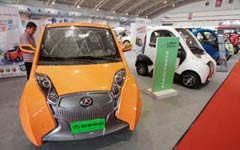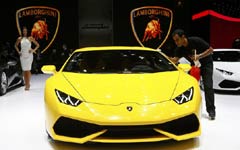Major reforms concerning the use of government vehicles will bring a mild boost to the sales of cars and help Chinese auto brands in the future to get a bigger share of government car purchases, analysts said.
Analysts estimate that there are more than 2 million government cars in service across the country. Among them, 90 percent are for daily business while others are designated for government officials or State-owned company bosses, or as special-function cars for public security purposes.
 |
?
 |
The cancellation of government cars means most civil servants will lose access to free transportation, and possibly be driven to rent or buy their own cars, experts said.
Zhang Xin, an analyst from Guotai Junan Securities, said this group can be potential buyers in the future, but it won't cause a sales surge, as the group is relatively small compared with the scale of the Chinese auto market - 20 million vehicles every year.
"And unless the governments has further directions to encourage buying home brands, these people have free choice between foreign brands and Chinese brands," Zhang said.
Even before the policy landed, some car dealers had already turned their eyes on this niche market when they heard speculation. Some joint-venture car dealers have been in contact with local governments and institutions for group-purchase discounts.
In the future, if governments and institutions want to replace old cars, they have to follow the government purchase list made by the Ministry of Industry and Information Technology. All cars on the list are Chinese brands.
In the past 30 years, most government cars were foreign brands - Toyota Crown and, later, Audi A6.
"This is a good opportunity for Chinese brands, especially when their market share was nibbled away by foreign brands for 10 consecutive months," said John Zeng, head of LMC Automotive Asia Pacific. "The annual purchase number is about 500,000, and it is a big cake for high-end home brands."
